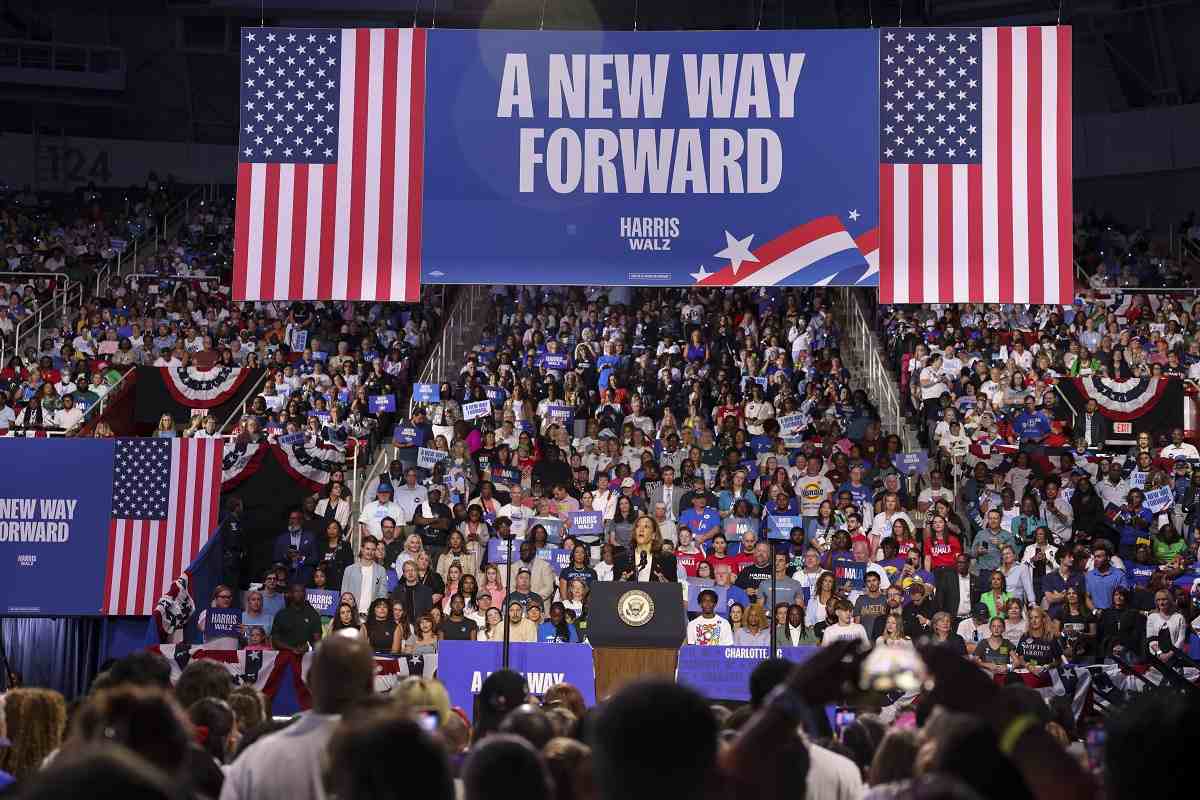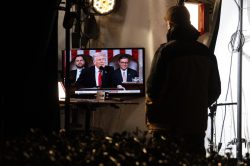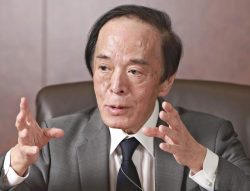
Vice President Kamala Harris speaks at a rally at Bojangles Coliseum in Charlotte on Thursday.
17:39 JST, September 15, 2024
LONDON – Strategists linked to Britain’s Labour Party have been offering advice to Kamala Harris about how to earn back disaffected voters and run a winning campaign from the center left.
British Prime Minister Keir Starmer didn’t meet with Harris when visiting the White House on Friday. But two of his former top advisers were in Washington this week briefing Democratic strategists and pollsters from the Harris campaign. Last month, a Labour Party delegation traveled to Chicago for the Democratic National Convention.
Since Harris became the Democratic presidential candidate, she has expanded the universe of people helping with her campaign, bringing on board experienced hands from the campaigns of Barack Obama and Hillary Clinton.
The British political gurus say they haven’t been recruited by the Harris operation and aren’t getting paid. But after Starmer led a revived Labour Party to a thumping election victory in July, British strategists say they have relevant insights to share.
Harris’s campaign has already been sounding a lot like Starmer’s. Like him, she is a former prosecutor who regularly cites that experience to portray herself as tough on crime and border security.
The two campaigns have deployed strikingly similar messaging. “Stop the chaos, turn the page, start to rebuild” was Labour’s slogan as it made a case against the Conservative Party that had been in power for 14 years. “We’re not going back. It’s time to turn the page … and to end the chaos,” Harris said, trying to position herself as the change candidate in her debate with former president Donald Trump.
Crucially, the swing voters Labour sought to win over, and the Democrats are now trying to reach, are people who are concerned above all about the economy.
British pollster Deborah Mattinson, a former top adviser to Starmer, and Claire Ainsley, Starmer’s former director of policy, jointly briefed Harris campaign staffers this past week on a target demographic they call “hero voters.”
In Britain, Ainsley told The Washington Post, these tended to be voters who had traditionally backed Labour but who had supported the 2016 Brexit referendum and the “Get Brexit Done” election campaign of Boris Johnson’s Conservative Party in 2019. They were struggling with daily living costs and wanted change.
“They felt like hope for a better life was getting out of reach,” said Ainsley, who now works with the Progressive Policy Institute (PPI) think tank in Washington.
Labour under Starmer won them back – partly by capitalizing on a strong anti-incumbent sentiment, but also by emphasizing economic issues, such as affordable housing and job security.
Christabel Cooper, a polling expert with Labour Together, a think tank with ties to the Labour Party, said the “ruthless targeting” of specific swing voters helped deliver an “incredibly efficient” vote. Labour won 63 percent of the seats in Parliament with only 34 percent of the vote share.
So who might be Harris’s hero voters? Ainsley and Mattison commissioned polling and focus groups that led them to a similar category of voters in the United States who expressed concern about the erosion of the middle class, frustration with the cost of groceries and general unhappiness with the status quo.
“They don’t love Trump, but they do believe he is offering change,” Ainsley said. At the same time, “they are open to Harris, but they want to see more of what her offer for them might be.”
To win them over, Ainsley said, Harris should articulate specific policies on core issues “over and over again,” like the tax benefits for young families and small businesses she brought up in the presidential debate.
Harris, like Starmer, has emphasized her middle-class upbringing. While Starmer wants to facilitate “wealth creation,” Harris would build an “opportunity economy.”
But the message shouldn’t be just about the economy, said Mike Tapp, a Labour lawmaker who was part of the contingent at the Democratic convention.
Others in the group included Morgan McSweeney, the brains behind Labour’s election campaign; David Evans, the general secretary of the Labour Party; Jon Ashworth, who runs Labour Together; and Lucy Rigby, another Labour lawmaker.
Tapp told The Post about speaking at an event on appealing to working-class voters. His advice? “To not ignore concerns around immigration and borders.” He noted that Harris was talking about taking on transnational criminal organizations much like Labour has pledged to “smash the gangs” that smuggle people into Britain illegally.
Starmer has repeatedly said he’d be ready to work with Harris or Trump – offering the sort of diplomatic niceties to be expected from a foreign leader.
But Jon Tonge, a politics expert at the University of Liverpool, said there was no doubt about Labour’s preferences in the U.S. presidential election. Labour and Democrats may not be ideological soul mates, but they are broadly similar in many areas. “Starmer will be hoping and praying for a Harris victory,” he said.
There have long been close links between the two political parties – though more often the advice has flowed in the other direction. Democratic pollster Stan Greenberg worked for Tony Blair, Gordon Brown and Ed Miliband; consultant Bob Shrum worked with Blair; pollsters Joel Benenson and Pete Brodnitz advised Brown; and Barack Obama strategist David Axelrod worked with Miliband.
Labour insiders interviewed for this article said that when Starmer became party leader in 2020, and Labour was trailing in the polls, Labour strategists spoke with Democrats in the United States, as well as center-left parties in Australia, Germany and Norway.
Tonge agreed that emphasizing economic issues in battleground states was sound, but he stressed that Labour’s path to victory was complex – while the party did actively win back some swing voters, it also benefited from a populace that wanted to chuck out the incumbents and a splintering of the vote on the right.
There are, of course, also numerous differences between Britain’s parliamentary elections and U.S. presidential ones. Among those distinctions: A British party that fields contestants in all constituencies can spend just over 34 million pounds ($44.6 million); Harris raised $47 million in the 24 hours after Tuesday’s debate.
“We have a very different system,” said Benenson, the American pollster, who worked for Obama and with Labour’s Brown. “My advice to the Harris campaign, respectfully, would be to ignore advice and do what you’re doing. You’re winning.”
Top Articles in News Services
-

Survey Shows False Election Info Perceived as True
-

Hong Kong Ex-Publisher Jimmy Lai’s Sentence Raises International Outcry as China Defends It
-

Japan’s Nikkei Stock Average Touches 58,000 as Yen, Jgbs Rally on Election Fallout (UPDATE 1)
-

Japan’s Nikkei Stock Average Falls as US-Iran Tensions Unsettle Investors (UPDATE 1)
-

Trump Names Former Federal Reserve Governor Warsh as the Next Fed Chair, Replacing Powell
JN ACCESS RANKING
-

Producer Behind Pop Group XG Arrested for Cocaine Possession
-

Japan PM Takaichi’s Cabinet Resigns en Masse
-

Man Infected with Measles Reportedly Dined at Restaurant in Tokyo Station
-

Israeli Ambassador to Japan Speaks about Japan’s Role in the Reconstruction of Gaza
-

Videos Plagiarized, Reposted with False Subtitles Claiming ‘Ryukyu Belongs to China’; Anti-China False Information Also Posted in Japan

























